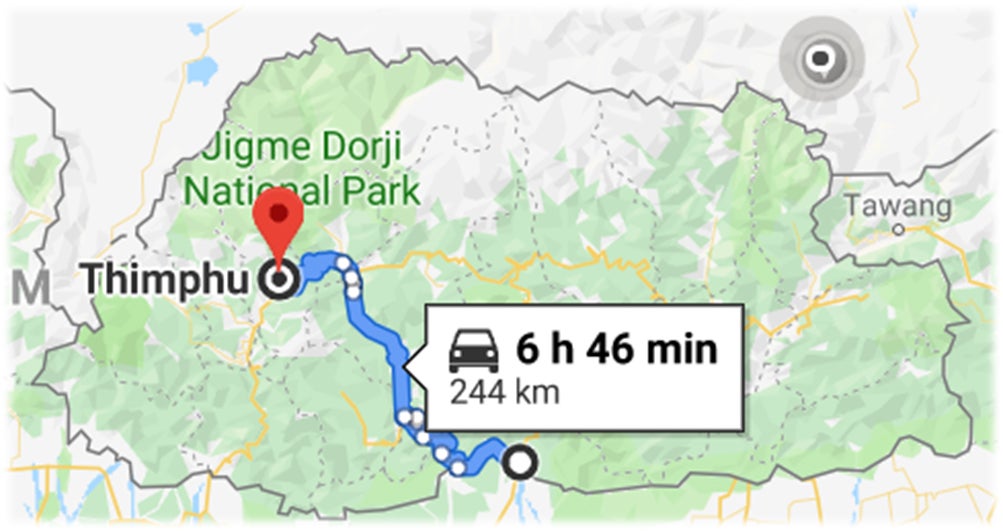 Transitioning to the new e-payment system supports seamless—and cashless—transactions between the government and banking systems. Photo Credit: Danita Delmont Shutterstock
Transitioning to the new e-payment system supports seamless—and cashless—transactions between the government and banking systems. Photo Credit: Danita Delmont Shutterstock
It’s 9 AM in the cold winter morning. Mr. Phuntsho is waiting along with a few others in front of one of the government accounts offices in Thimphu, Bhutan.
Earlier that morning, Mr. Phuntsho took a nearly seven-hour journey from Gelephu in southern Bhutan to reach his destination.
As a part-time payment collector, his job entails retrieving a few checks his employer, Mr. Pema, urgently needs to procure goods for his business.

Mr. Phuntsho's seven-hour journey from Gelephu in southern Bhutan to reach his destination.
Mr. Pema is one of several small and medium entrepreneurs who are suppliers to the government and must wait for several days before receiving their payments. “Due to check payments not only our working capital is blocked, but we are also spending money on employing payment collectors like Mr. Phuntsho,” Pema says. “This severely impacts our margins forcing us at times to quote higher than what we normally have done.”
But now, Mr. Pema can expect a faster turnaround time, let alone no physical trips to the capital city for Mr. Phuntsho, as all government payments are to be processed electronically through e-PEMS or Electronic Public Expenditure Management System.
Launched in July 2019, e-PEMS is the product of collaboration with the Bank of Bhutan and the Royal Monetary Authority.
“This is a historic move in terms of structural and systemic changes in streamlining the Public Financial Management (PFM) system in Bhutan, ” said Honorable Finance Minister Namgay Tshering, adding that as the country progresses, the use of IT [Information Technologies] tools has become inevitable.
The new e-payment system supports seamless—and cashless—transactions between the government and banking systems, allowing salaries, pensions, payments, and benefits to be delivered without manual intervention
Speaking at the launch, Finance Secretary Nim Dorji remarked that the launch of the electronic payment system was an important milestone toward enhancing public financial management. “Since Bhutan is preparing to graduate from its least developed country status, strong Public Expenditure Management System was critical in providing a culture of fiscal discipline for sensible utilization of public resources ,” he went on.
Altogether, all citizens should soon expect speedier payment services and fewer administrative hurdles—and for Mr. Phuntsho, this means no more long-distance travels to collect his checks.


Join the Conversation